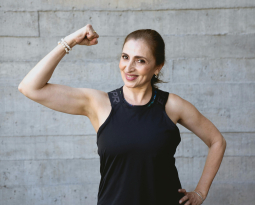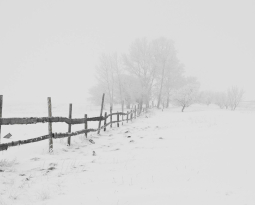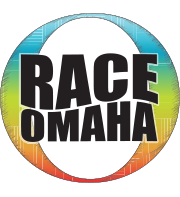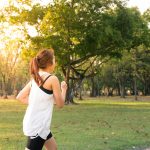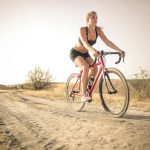
9 Summer Heat Tips for Athletes
This time of year, you’ll often find tips on how to stay fresh while training and racing in the heat. I wanted to share some helpful tips from my awesome nutrition coach, Steve Born of Hammer Nutrition, who’s actually one of the few inductees to the Ultra-Cycling Hall of Fame. Check these out!
Extreme summer weather can make a challenging race even more difficult. The heat can not only slow down your finishing time, but also lead to serious medical issues if you’re not properly prepared and don’t respond appropriately. Follow these simple but important precautions to overcome the heat and finish the race strongly.
- Train in the heat
Heat acclimatization and fitness reduce fluid and electrolyte losses by up to 50%. - Stay properly hydrated all day long
Since approximately 60% of your body is comprised of water, it’s vitally important to maintain optimal hydration status all day long, especially if you’re exercising in hot weather. Unfortunately, many people live in a state of perpetual dehydration, and that negatively affects their athletic performance and health. Starting now, gradually increase your fluid intake, primarily from pure, clean water, so that the total number of ounces you’re drinking daily equals 0.5 to 0.6 of your daily weight in pounds (e.g., a 150 lb. athlete should consume 75-90 ounces of fluids daily, in addition to what is being consumed during exercise). - Drink appropriate amounts of fluids during exercise
Don’t assume that you can drink unlimited amounts of water or fluid during exercise and that all of it will be absorbed, with the excess excreted in sweat or urine. You will instead blot, overly dilute your blood, and perhaps even develop water intoxication (Hyponatremia). Keep fluid intake during exercise between 20-25 ounces per hour, plus or minus 3-4 ounces, depending on your weight and the weather. If you feel you need more fluids than what you usually consume, experiment in training, keeping in mind that you will require additional electrolytes to match your increased fluid intake. - Increase your endurolytes dose or use Endurolytes Extreme (Hammer Nutrition’s electrolyte replacement sources.)
Suppose you’re exercising in weather that you’re not yet acclimated to. In that case, your electrolyte losses will be higher than usual, so you will either have to increase your intake of endorolytes or use Endurolytes Extreme. The same applies if you often have unusually high sweat rates due to high dietary sodium intake. - Avoid foods and fuels that contain short-chain carbohydrates
Simple-sugar-based fuels require more fluids and electrolytes for digestive purposes. Stick with the complex carbohydrates (maltodextrin) in Hammer fuels vs. simple sugar fuels. Also, remember that in hot weather, your ability to process calories will most likely diminish; adjust your caloric intake accordingly. - Pace yourself accordingly
If the weather is hot, and especially if you’re not acclimated, your pace can’t be “business as usual.” Slow down in deference to the weather until your body adjusts to the heat. - Use caffeine with caution
Used properly and sparingly, caffeine has impressive ergogenic benefits. However, it is believed to have diuretic properties, which may deplete fluid stores more rapidly. Caffeine is also a central nervous stimulant, which may increase your heart rate, making it work even harder in the heat. - Get wet
During the hottest weather conditions, sponge yourself off with cold water while taking short periodic breaks from the race pace. - Know the symptoms of overhydration and dehydration
Stop immediately if you feel lightheaded or queasy or get dry chills. No race or training is worth compromising your health.




